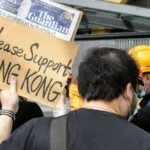Huawei has an impressive list of accomplishments focused on making the world a better place. I’m a big believer in the concept of doing well by doing good, and Huawei’s latest report on their related activities is impressive. However, I’ve been doing a series of programs for the World Talent Economy Forum on Science and Engineering, and a common conclusion is that what we need is both a better balance between employees and management in terms of the application of automation but that one of the critical needs worldwide is Internet access. Huawei’s existence addresses those two massive problems directly, but the positive impact of these elements isn’t as widely known.
Let’s talk about Huawei and CSR this week.
The Changing Focus On CSR
When companies first started down the CSR path, there was a massive disparity between firms that walked the talk and those that just gave the talk. Some companies were all in with education systems, efforts to find alternative energy sources, clean water, food, and medicine to those in the world that most needed it, and efforts to eliminate homelessness where their factory sites were located. And then we had folks that just promised to plant a tree if you bought something.
As time has gone on, the “plant a tree” thing has mostly died out, and for those firms still talking about CSR, they seem to have discovered that customers aren’t idiots and didn’t appreciate the tree planting efforts much; they wanted well-funded efforts that made real progress.
Companies also seem to be coming around to the idea that the most impact on the world is when they can use their talents and resources to help make a difference, not just their money. This comment on financial investment in programs isn’t to say that money is no longer donated. Providing funding, advice, and technology can make any monetary investment go far farther to create real progress with related CSR efforts.
The focus now for companies wanting to make a real difference is a blend of funding and corporate resources that provide a force multiplier and significantly increase the world impact.
Huawei’s Programs
Huawei is one of the more aggressive companies in the world, prioritizing CSR. They have launched over 14K free educational courses to help emerging economies produce workers with the critical skills to work on technology projects. Their monitory investments include a $1B fund called the Shining Star Program focused on rewarding and making visible critical, innovative applications dealing with world problems. They have engaged 1.8M people on their Heart Health Research Applications, which could have a material impact on improving world heart health.
Environmentally they have reduced the use of plastics by 17% and substantially reduced the amount of packaging it takes to ship some products reducing the amount of waste produced by the company substantially. Their programs to rehome smartphones have kept 500K phones from prematurely going into landfills, and an extensive recycling advocate they have recycled 5K tons of through their recycling systems.
Huawei’s Hidden CSR Effort
Huawei is primarily owned by its employees, which creates a unique balance between executive management, which runs the company, and the firm’s employees who own it. Given the adverse impact Hedge Fund managers are having on US companies, this employee ownership model may be a bigger way to build and run a company because it better assures the economic value created by the firm doesn’t just flow to the C Suite flows to all of the employees.
Huawei also provides the lowest cost highest performance cell tower solution in the market primarily because these high-speed solutions will need equally high-speed backhaul so that the solutions don’t bottleneck. Their aggressive pricing has favored their solutions in emerging markets and better enabling efforts to connect the currently unconnected.
These two natural elements of Huawei may have more impact on making the world a better place than their focused aspects.
Wrapping Up:
Corporate Social Responsibility, for most companies, is now a severe endeavor, and much of the focus is on education, retraining, and assuring the world’s critical resources. For instance, one of the Huawei efforts I didn’t mention was a massive partnership to protect the Rain Forest from being destroyed and the planet’s degrading ecological balance destroyed with it. But the real power with Huawei, I think, is their employee ownership structure and their cell tower technology which is instrumental in connecting those currently disenfranchised from the Internet.
In combination, all of these efforts showcase Huawei as a force for good. We need more companies that are forces for good to protect the planet from an otherwise dire future.








